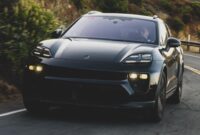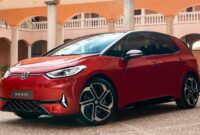The VW Group is determined to revive the Scout brand with an electric SUV and pickup coming in the second half of the decade. Meanwhile, the core brand is toying with the idea of launching its own rugged vehicle without the combustion engine. VW Commercial Vehicles CEO Carsten Intra speaks with Car at the launch of the second generation Amarok in South Africa about the prospect of an electric SUV bearing the VW logo on a ladder frame chassis.
When asked about body-on-frame electric SUVs, Intra said VW and Ford are analyzing the T6 platform used for the Ranger and Amarok to see if it’s suitable for EV applications: “We’re looking at it together with Ford. That’s still on the agenda.” Car It is speculated that such a model will be shaped after the ID Ruggdzz, a conceptual all-terrain electric SUV that never made its public appearance but some members of the media had the chance to see again in 2019.
While the ID Ruggdzz is based on the VW Group’s MEB platform, its namesake production vehicle will be powered by the T6 architecture that is also used by Blue Oval for its seven-seat Everest SUV. The folks from Wolfsburg originally intended to sell the MEB-based ID Ruggdzz in 2030, but the vehicle was delayed towards the end of 2020 after a software bug negatively impacted the market launch of the ID.3. At that time, the plan to sell Buggy’s ID was also cancelled.
If VW approves a rugged electric SUV for production, it will need a battery pack with a minimum capacity of 110 kWh, according to company officials quoted by Car. Anything below will not be sufficient to provide the range and towing capacity customers expect from an SUV. One big change compared to the Amarok and the combustion engine Ranger is replacing the leaf spring rear suspension with a multi-link arrangement.
Petr Sulc, a senior member of VW’s global product management team, told the Australian magazine Which car as of early December 2022, the Amarok-based electric SUV will not clash with the Scout. The former will have global appeal while the latter will mainly target the United States, so the risk of cannibalization of sales will be minimal.





